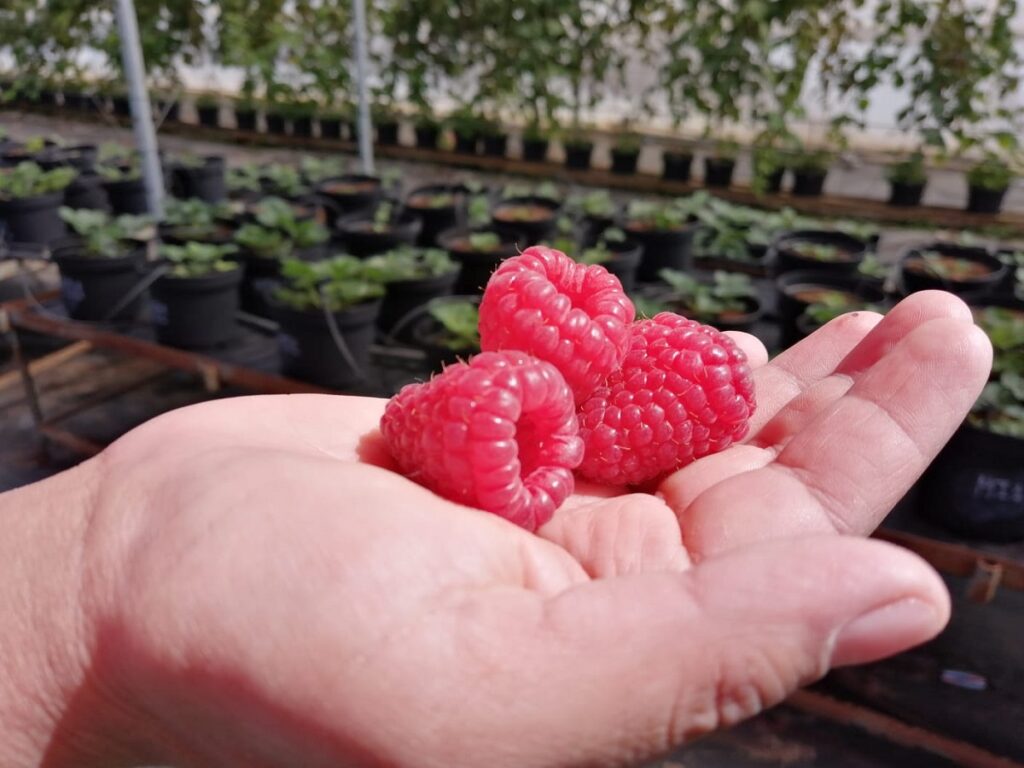Four new raspberry varieties unveiled in Chile

A technological consortium led by the Chilean fruit exporter association ASOEX and other stakeholders has presented four new raspberry varieties developed in the South American nation.
According to an ASOEX statement, the four varieties complement three others already unveiled which are part of the consortium’s “saint” series: Santa Catalina, Santa Clara and Santa Teresa. These prior three varieties stand out for a large size and great flavor, and have been deployed with small growers in Chile, Spain, Portugal, Mexico and Peru.
These new varieties were developed in conjunction with Chile’s Catholic University and the government investment promotion agency Corfo. Researchers have targeted advances in productivity and their resistance to water stress and disease.
ASOEX President Ronald Bown said in the statement that the Raspberry Genetic Improvement Program of the association has always been focused on small to midsize growers, and providing a profitable, quality alternative for their operations.
The new varieties are currently being registered with Chile’s plant and animal service SAG. The director of the program Marina Gambardella said that these new releases are greatly superior to previous versions in fundamental terms like plant production and fruit quality.
Furthermore, researchers were pleased that the development of the new raspberry varieties has occurred faster than expected. The previous three varieties released in 2015 had a total time to market of 6 years, and researchers expected that it could take as many as 10 to 12 years in total.
The consortium also released a new table grape variety earlier in March.

































